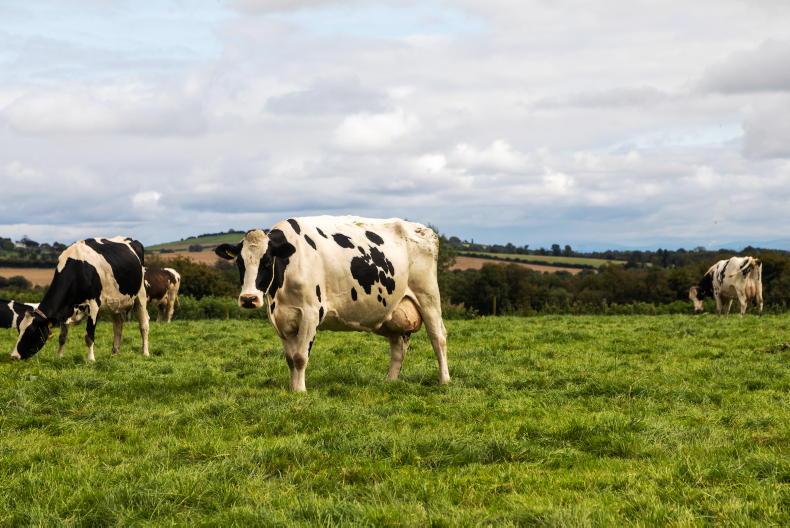Senator Erin McGreehan has suggested that farmers are being bullied when it comes to their carbon emissions.
Speaking during a debate on carbon sequestration on farms in the Seanad on Wednesday, the Fianna Fáil senator said that there is a lack of clarity on the “carbon balance sheet” for farmland, leaving farmers at a loss.
“I am very frustrated by the lack of clarity on the topic. We have had crazy debates, including some bullying in my opinion, over carbon budgets for agriculture.
“The narrative from some in the media and among elected representatives in this debate shows a significant level of misunderstanding by the majority about Irish agriculture. As a result, it often threatens and downgrades agriculture. That can be very difficult,” Senator McGreehan said.
Taken advantage
Outlining the effort farmers are making to become more environmentally sustainable, the senator asked why are farmers taken advantage of?
“We have big and small farm holdings. They are the carbon sink of this nation and, to date, there is no acknowledgement of that by the State. Trees, grass, soil and even sheep's wool sequesters carbon.

Senator Erin McGreehan said the carbon that farmers sequester on their farms needs to be accounted for. \ Claire Nash
“The 400,000km of hedgerows right across the country is a carbon sink and a biodiversity haven. Even the lowly common hawthorn has about 200 different insects living on it,” she said.
Senator McGreehan said that the State should be “empowering farmers and giving them control to work towards the net-zero agriculture we all want and they want”.
“I passionately believe that science will back me up on this and that the majority of farmers, in particular the small ones, are farming in a net-zero way in terms of carbon,” she added.
Carbon farming framework
Speaking on behalf of her colleague Minister for Agriculture Charlie McConalogue, Minister of State Mary Butler highlighted that the carbon sequestration work of farmers must be “underpinned by a well-functioning national carbon farming framework”.
The minister said that this framework must provide confidence, verification and certification to generate a potential additional income source for farmers in the actions they take to remove and store carbon in soils, forests, grasslands, croplands and hedgerows.
She pointed out that in November 2022, the European Commission published a proposal on the certification of carbon removals to boost removal technologies and sustainable farming solutions.
“On 26 September, the Minister - Deputy McConalogue - launched a public consultation to guide the development of a national carbon farming framework, which will be customised to an Irish context,” she said.
Senator Erin McGreehan has suggested that farmers are being bullied when it comes to their carbon emissions.
Speaking during a debate on carbon sequestration on farms in the Seanad on Wednesday, the Fianna Fáil senator said that there is a lack of clarity on the “carbon balance sheet” for farmland, leaving farmers at a loss.
“I am very frustrated by the lack of clarity on the topic. We have had crazy debates, including some bullying in my opinion, over carbon budgets for agriculture.
“The narrative from some in the media and among elected representatives in this debate shows a significant level of misunderstanding by the majority about Irish agriculture. As a result, it often threatens and downgrades agriculture. That can be very difficult,” Senator McGreehan said.
Taken advantage
Outlining the effort farmers are making to become more environmentally sustainable, the senator asked why are farmers taken advantage of?
“We have big and small farm holdings. They are the carbon sink of this nation and, to date, there is no acknowledgement of that by the State. Trees, grass, soil and even sheep's wool sequesters carbon.

Senator Erin McGreehan said the carbon that farmers sequester on their farms needs to be accounted for. \ Claire Nash
“The 400,000km of hedgerows right across the country is a carbon sink and a biodiversity haven. Even the lowly common hawthorn has about 200 different insects living on it,” she said.
Senator McGreehan said that the State should be “empowering farmers and giving them control to work towards the net-zero agriculture we all want and they want”.
“I passionately believe that science will back me up on this and that the majority of farmers, in particular the small ones, are farming in a net-zero way in terms of carbon,” she added.
Carbon farming framework
Speaking on behalf of her colleague Minister for Agriculture Charlie McConalogue, Minister of State Mary Butler highlighted that the carbon sequestration work of farmers must be “underpinned by a well-functioning national carbon farming framework”.
The minister said that this framework must provide confidence, verification and certification to generate a potential additional income source for farmers in the actions they take to remove and store carbon in soils, forests, grasslands, croplands and hedgerows.
She pointed out that in November 2022, the European Commission published a proposal on the certification of carbon removals to boost removal technologies and sustainable farming solutions.
“On 26 September, the Minister - Deputy McConalogue - launched a public consultation to guide the development of a national carbon farming framework, which will be customised to an Irish context,” she said.







 This is a subscriber-only article
This is a subscriber-only article










SHARING OPTIONS: